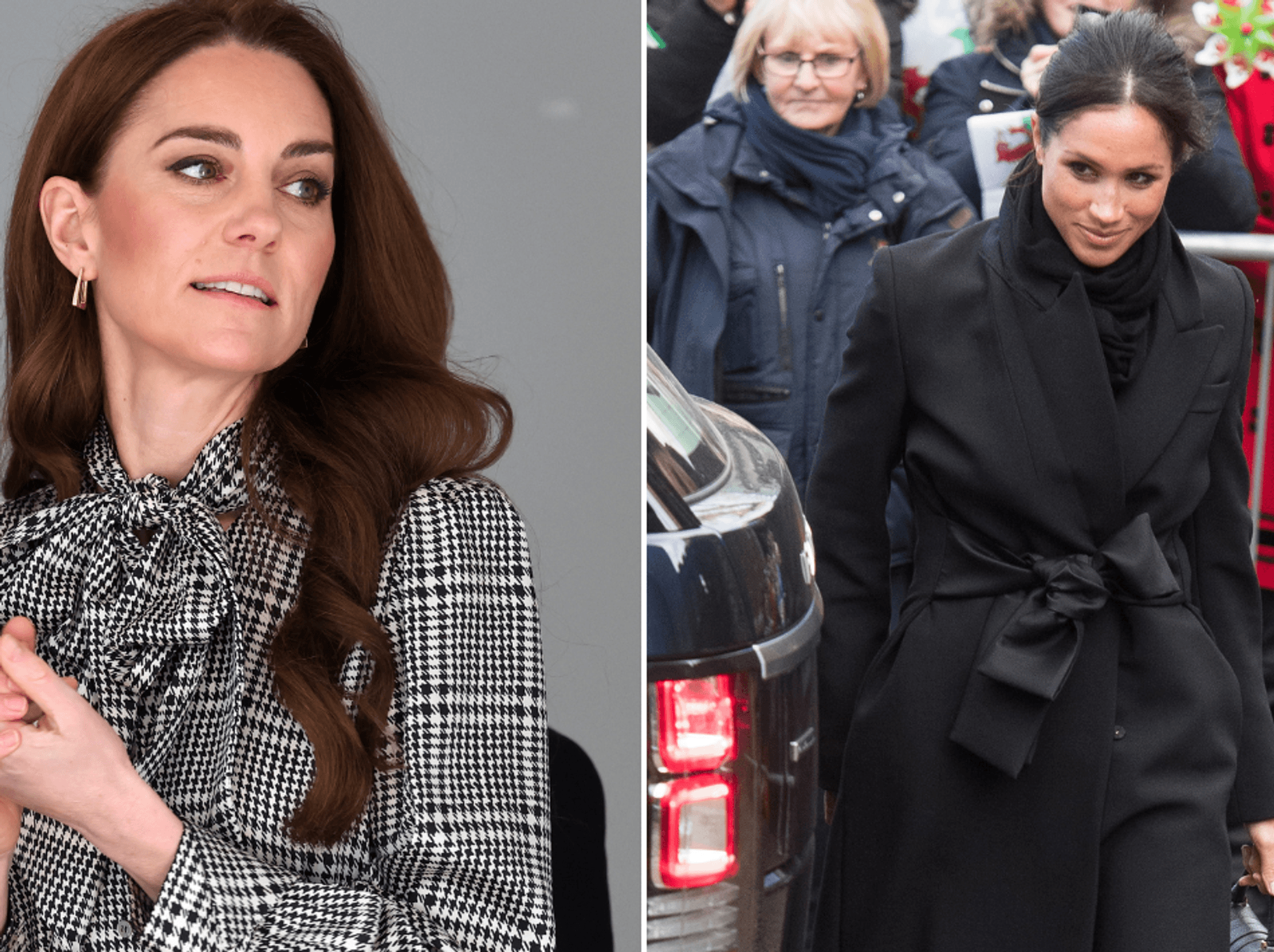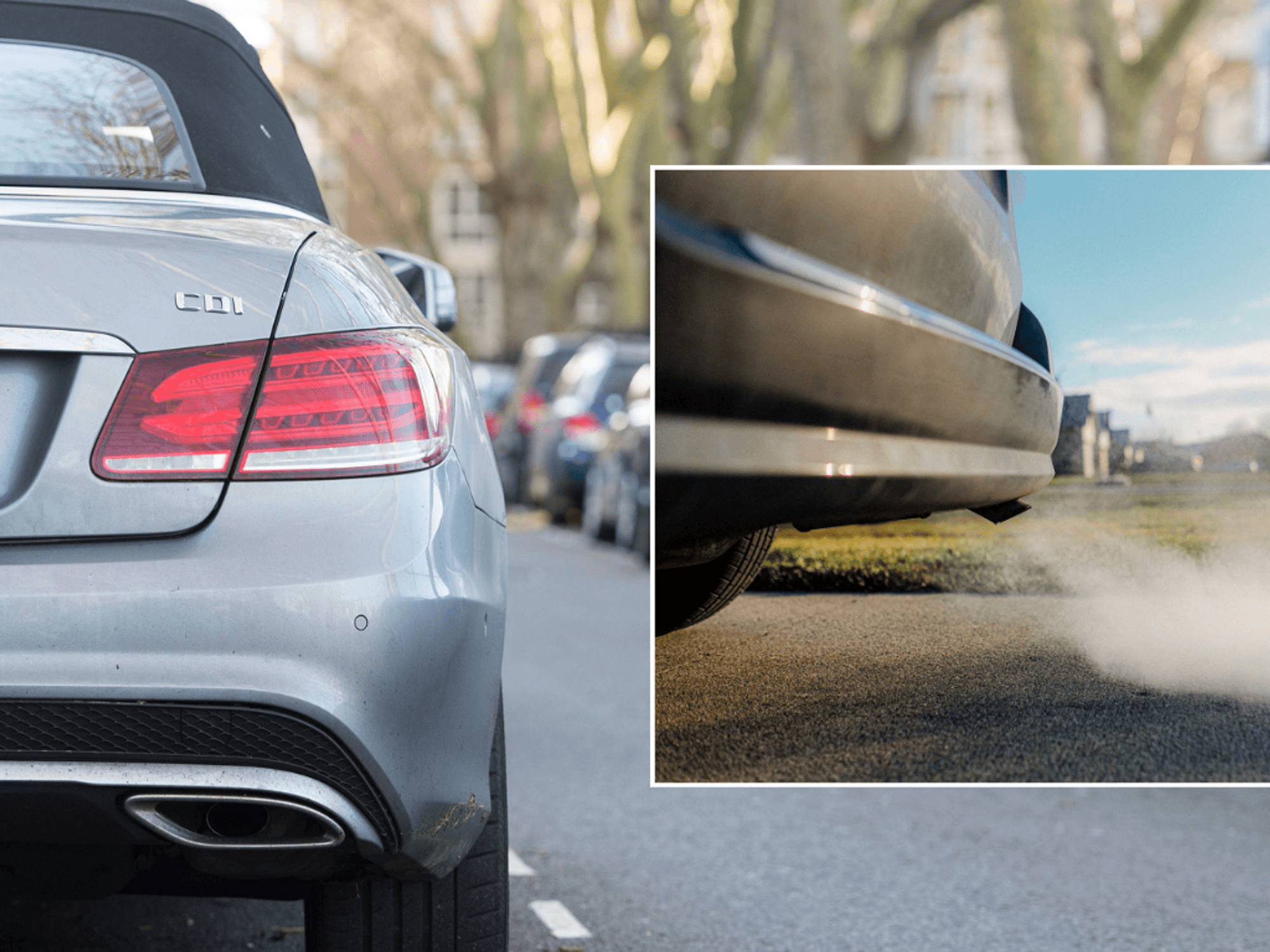Archaeology breakthrough: Ancient Egyptian treasures uncovered in barracks of warmongering pharaoh
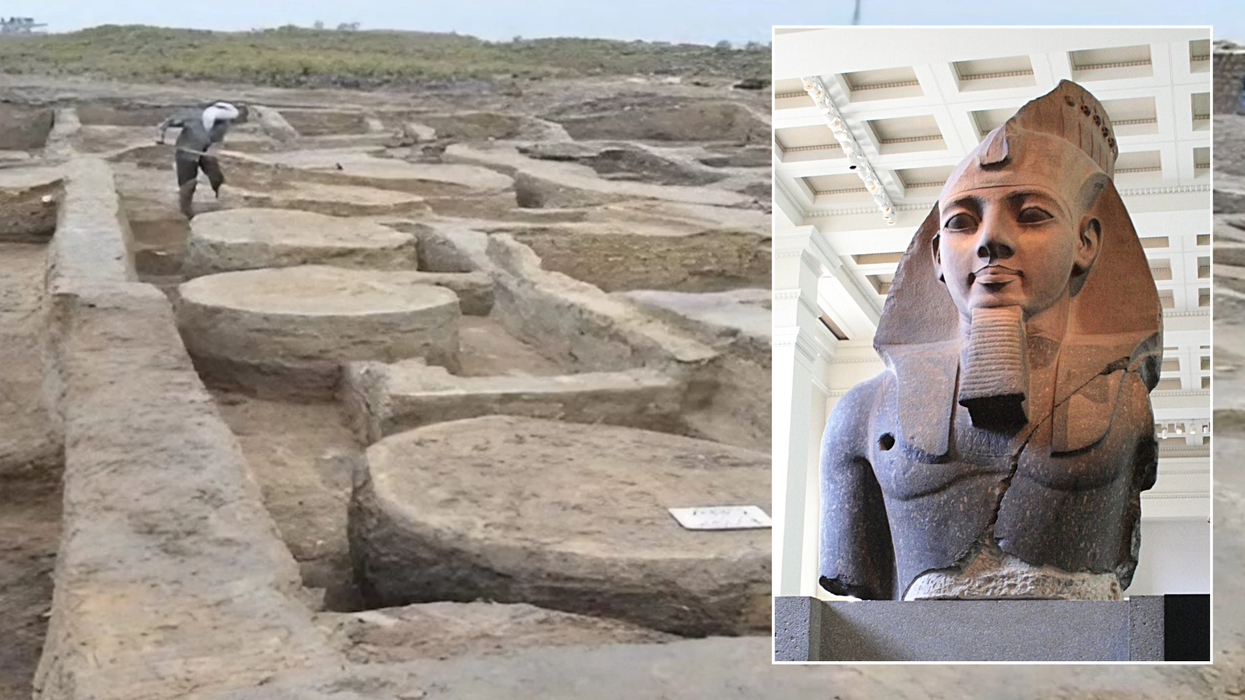
Archaeologists have discovered many ancient Egyptian treasures in a Ramsey II's military barracks
|Supreme Council of Antiquities/Wikimedia Commons

The military site belonged to Ramses II, who ruled ancient Egypt between 1279–1213 BC
Don't Miss
Most Read
Archaeologists have discovered many ancient Egyptian treasures in a former military barracks which belonged to a warmongering pharaoh.
A series of mud brick architectural units, including storage rooms for weapons, food, and provisions, have been found at the site of Tell Al-Abqain, in the northwestern desert.
The discoveries have been linked to Ramses II, who ruled ancient Egypt between 1279–1213 BC.
The pharaoh’s reign was the second longest in Egyptian history and he has been referenced in works ranging from the Bible to the 1998 Dreamworks film The Prince of Egypt.
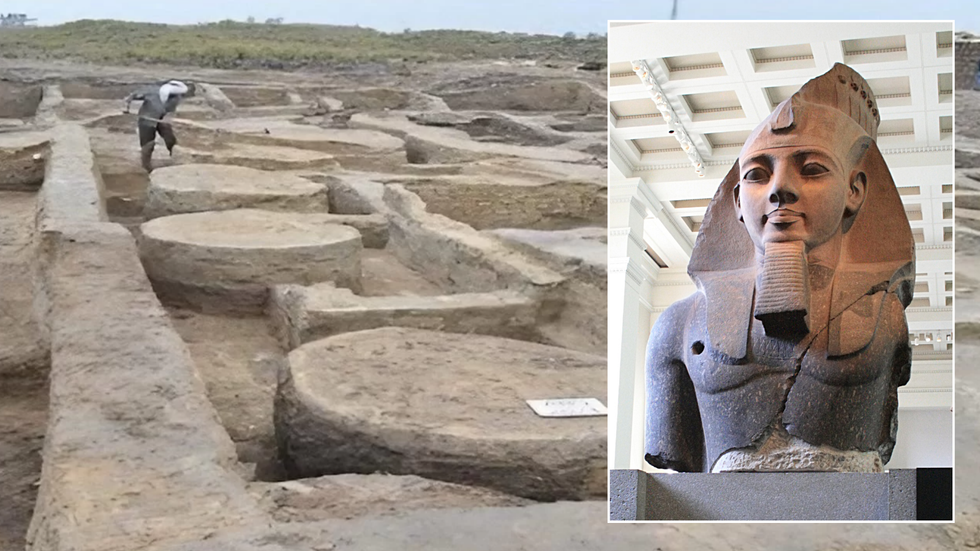 Archaeologists have discovered many ancient Egyptian treasures in a Ramsey II's military barracks | Supreme Council of Antiquities/Wikimedia Commons
Archaeologists have discovered many ancient Egyptian treasures in a Ramsey II's military barracks | Supreme Council of Antiquities/Wikimedia CommonsThe team, led by Dr. Ahmed Said El-Kharadly of the Supreme Council of Antiquities, also found personal items belonging to the soldiers stationed in the barracks in the Abqain Fort - including the sword of Ramses II.
Ceramic storage jars, ivory kohl applicators, scarabs and protective amulets were also discovered, as well as a cow which had been buried in the barracks. The animals were seen as revered celestial deities, symbolising strength, abundance, and prosperity.
The fort was one of the key military posts of the ancient Egyptian army, and Mohamed Ismail Khaled, the secretary general of the government body, said that the barracks would have been a “crucial military stronghold for the ancient Egyptian army on the western military road, protecting Egypt’s northwestern borders from attacks by Libyan tribes and Sea Peoples”.
MORE ARCHAEOLOGY BREAKTHROUGHS:
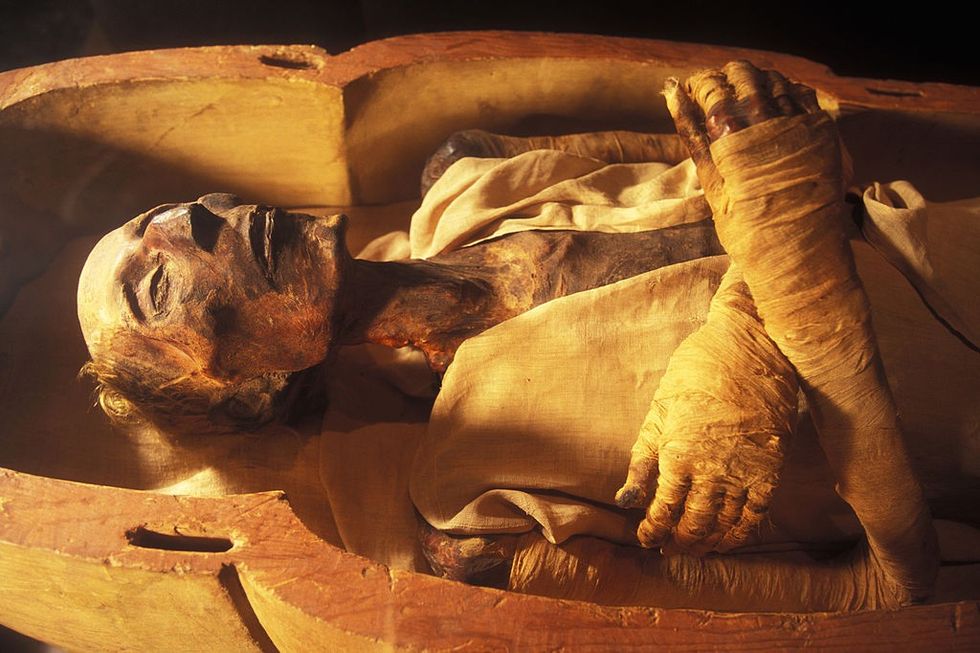 The mummy of Ramses II | Getty
The mummy of Ramses II | GettyThe Sea People were a group of aggressive seafarers who invaded many nations and societies during this time, including the Hittite empire. Some believe that the marauders were responsible for the mythical destruction of Troy.
Two limestone blocks were also found, one inscribed with hieroglyphs detailing the titles of Ramses II, and the other belonging to an official named Bay.
Huge silos with the remnants of pottery vessels containing fish and animal bones inside were also discovered, as well as ovens used for cooking.
Dr Ayman Ashmawy, the head of the Egyptian antiquities sector, said that their discoveries indicated that soldiers were fed daily with provisions.
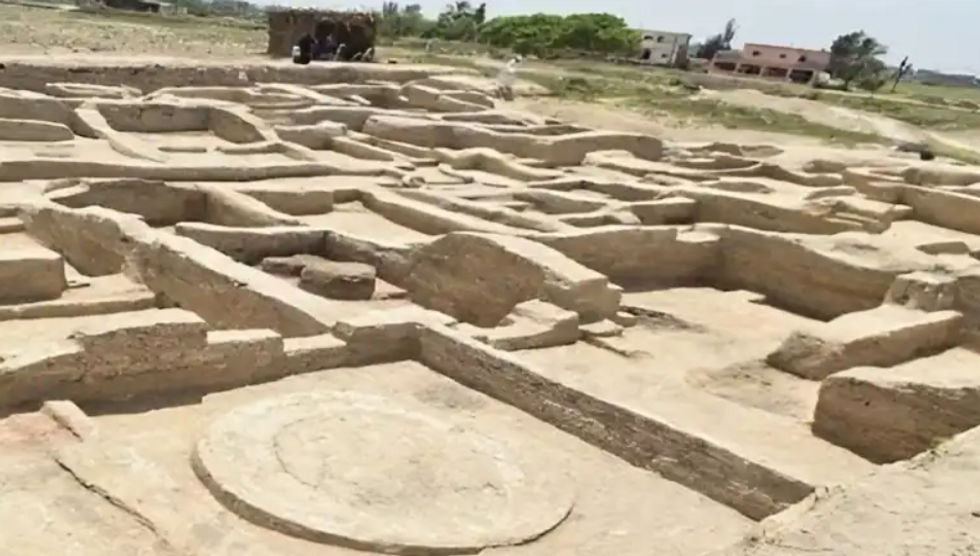
The discoveries have been linked to Ramses II, who ruled ancient Egypt between 1279–1213 BC
|Supreme Council of Antiquities
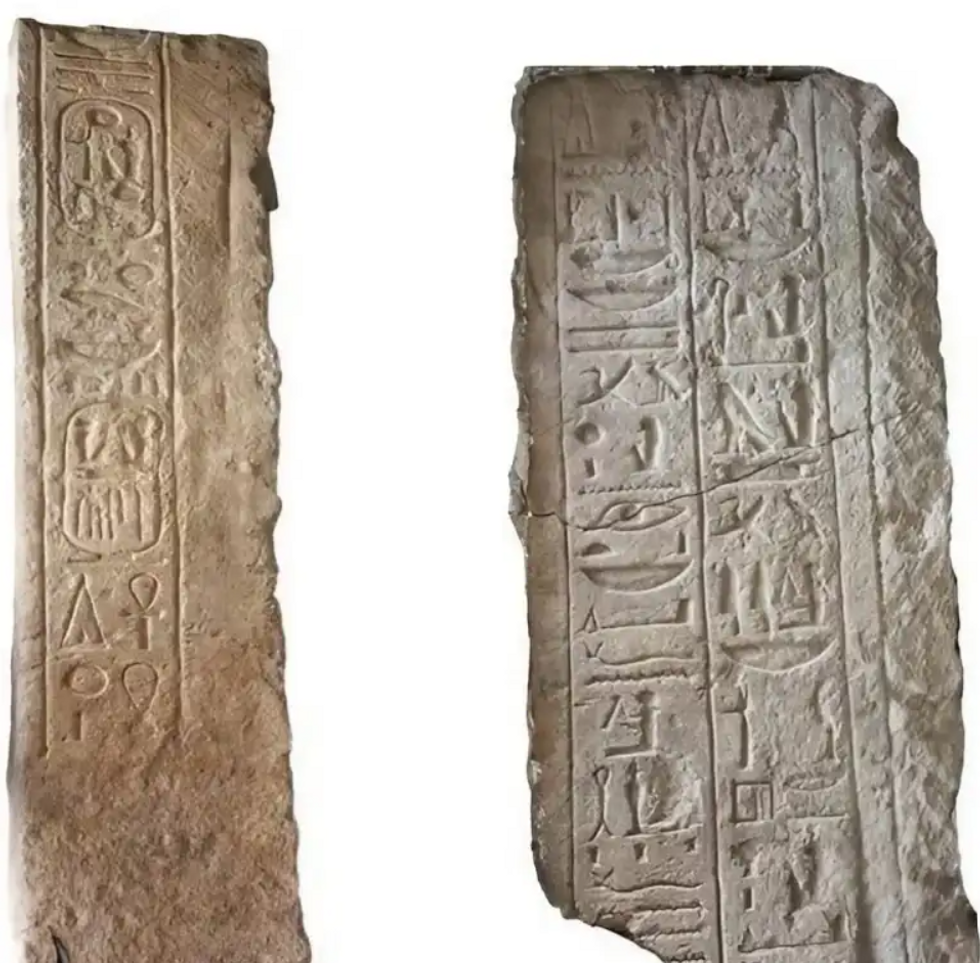
Two limestone blocks were also found, one inscribed with hieroglyphs detailing the titles of Ramses II, and the other belonging to an official named Bay
|Supreme Council of Antiquities
Ramses II’s 66-year reign is considered to be the peak of Egypt’s power and glory, and is often regarded as the most celebrated pharaoh of the New Kingdom - the most powerful period of ancient Egypt.
He oversaw the building of many cities, temples, and monuments. Known as Ramses the Great, many statues of him can be found all across Egypt.
He conducted at least 15 military campaigns which all resulted in victory, before being fought to a standstill in present-day Syria.
The Greeks named him Ozymandias and poet Percy Bysshe Shelley devised a sonnet about the pharaoh. It has been heralded as “one of the greatest and most famous poems in the English language”.






